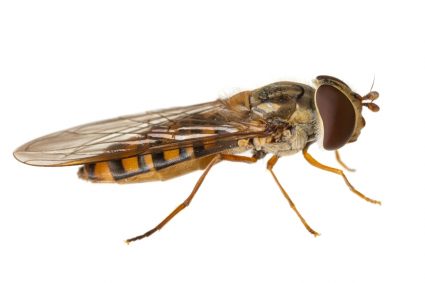
Tea tree oil, known for its potent medicinal properties, is a natural product that’s been used for centuries to treat a variety of health conditions. But did you know that this versatile oil also serves as a powerful insect repellent? Whether you’re dealing with flies, mosquitoes, ticks, or lice, tea tree oil can be your go-to solution. Let’s delve into the world of tea tree oil and discover what it repels, how it works, and how to use it safely.
Tea tree oil, also known as melaleuca oil, is a natural insect repellent. It is effective against a wide range of insects and pests, including flies, mosquitoes, ticks, fleas, lice, bed bugs, ants, and spiders. The oil’s strong odor and active ingredients like terpinen-4-ol make it intolerable to these pests. However, it’s important to use tea tree oil safely, as it can cause skin irritation and is toxic when ingested.
What is Tea Tree Oil?
Tea tree oil, also known as melaleuca oil, is an essential oil obtained from the leaves of the Australian tea tree (Melaleuca alternifolia) through steam distillation. The tea tree is native to southeast Queensland and the northeast coast of New South Wales, Australia. The oil has a fresh, camphoraceous odor and a color that ranges from pale yellow to nearly colorless and clear.
It has been used for almost 100 years in Australia and is known for its antibacterial, anti-inflammatory, antiviral, and antifungal properties. Traditional uses of tea tree oil by the Bundjalung Aborigines of northern New South Wales involved inhaling crushed leaves to treat colds and coughs, as well as using the oil topically for skin healing.
Insects and Pests That Tea Tree Oil Repels
Tea tree oil is effective against a wide range of insects and pests. Here are some of them:
- Flies: In one study, cows treated with tea tree oil had 61% fewer flies than untreated cows after 24 hours.
- Mosquitoes: Tea tree oil has been found to be an effective mosquito repellent.
- Ticks and Fleas: The strong odor of tea tree oil is intolerable to these pests, making it a useful repellent.
- Lice: Tea tree oil can even treat lice by suffocating them and preventing their eggs from hatching.
- Bed Bugs, Ants, and Spiders: These pests are also repelled by the strong scent of tea tree oil.
How Does Tea Tree Oil Work as a Repellent?
Tea tree oil’s primary active ingredients, such as terpene hydrocarbons, monoterpenes, and sesquiterpenes, contribute to its antibacterial, antiviral, and antifungal activity. These properties make tea tree oil a natural and potentially effective alternative to standard insecticides or repellents.
- Terpinen-4-ol: This compound found in tea tree oil has been shown to kill certain bacteria, viruses, and fungi. It also appears to increase the activity of white blood cells, which help fight germs and other foreign invaders.
- Strong Odor: The strong odor of tea tree oil is intolerable to insects, making it an effective repellent.
- Insecticidal Activity: Tea tree oil can kill insects by soaking into their exoskeleton and suffocating them.
- Repellent Effects: In some studies, tea tree oil has been found to repel insects effectively.
Safety Concerns and Side Effects
While tea tree oil has numerous benefits, it’s essential to be aware of potential side effects and safety concerns. When applied to the skin, tea tree oil can cause skin irritation and swelling. In people with acne, it can sometimes cause skin dryness, itching, stinging, burning, and redness. It should never be taken orally as it is toxic when ingested.
To minimize the risk of side effects, it is recommended to dilute tea tree oil with a carrier oil, such as coconut or olive oil, before applying it to the skin. Additionally, it is advised to perform a patch test on a small area of skin before using it on larger areas to check for any adverse reactions.
Comparing Tea Tree Oil with Other Natural Repellents
When compared to other natural repellents like lemon eucalyptus oil and citronella oil, tea tree oil has shown promising results. However, the choice of natural repellent may depend on the specific insects you want to repel and personal preferences, such as scent and potential skin reactions.
Enhancing Repellent Effect with Other Natural Ingredients
Tea tree oil can be mixed with other natural ingredients to enhance its repellent effect. For example, geranium essential oil, eucalyptus oil, neem oil, black pepper oil, and rosemary oil can be combined with tea tree oil to create a more potent insecticide.
In conclusion, tea tree oil is a versatile and natural solution for repelling a variety of insects and pests. However, it’s essential to use it safely and responsibly, considering potential side effects. Always consult with a healthcare professional before using tea tree oil, especially if you plan to use it on children, pregnant women, or pets.
Frequently Asked Questions
Can I use tea tree oil directly on my skin?
No, it’s not recommended to use tea tree oil directly on the skin as it can cause irritation and swelling. It should be diluted with a carrier oil, such as coconut or olive oil, before applying it to the skin.
Can tea tree oil be ingested?
No, tea tree oil should never be taken orally as it is toxic when ingested.
Can I use tea tree oil on my pets to repel insects?
While tea tree oil can repel insects, it’s important to consult with a veterinarian before using it on pets. Some animals may have adverse reactions to essential oils.
How should I store tea tree oil?
Tea tree oil should be stored in a cool, dark place, away from direct sunlight. The oil should be tightly sealed to maintain its potency.
How long does tea tree oil last?
When stored properly, tea tree oil can last up to 1-2 years. However, if the oil changes color, develops a cloudy appearance, or smells off, it’s best to discard it.
Does tea tree oil repel all types of insects?
Tea tree oil has been found to repel a variety of insects, including flies, mosquitoes, ticks, lice, bed bugs, ants, and spiders. However, its effectiveness can vary depending on the insect species and the concentration of the oil used.










